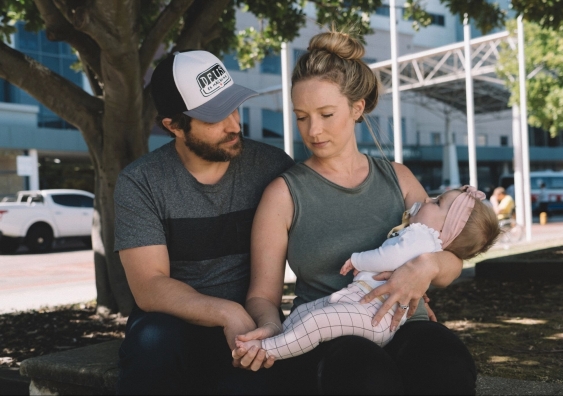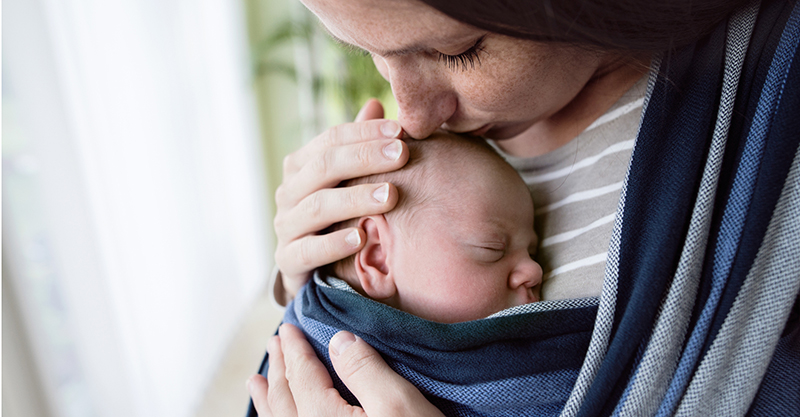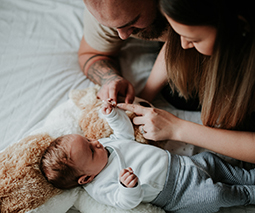Australian parents-to-be given access to life-changing genetic testing

A new project launched on Thursday aims to give couples access to genetic testing, providing potentially life-saving information about health conditions their babies may at risk of.
Sniffing out life-threatening conditions
“UNSW researchers will play a leading role in a $20 million project to provide 10,000 couples with genetic testing to see if their babies are at risk of being born with life-threatening conditions,” a UNSW statement explains.
This national program is called The Mackenzie’s Mission Project, named in honour of a little girl who lost her life to a genetic condition at just seven months of age.

Rachael and Jonathan Casella’s daughter Mackenzie, very sadly died from spinal muscular atrophy (SMA) last year. Neither Rachael nor Jonathan (pictured, above) have SMA themselves, but both were found to be carriers after their daughter was born with the condition.
“After Mackenzie’s diagnosis we knew we couldn’t change our family’s future, but we could stop it from happening to other families,” Rachael says.
“To have this carrier screening pilot project named after our daughter gives us such pride: to know she will live on through this legacy means everything to us.”
Read more about conception and pregnancy:
- These undies probably give dads-to-be stronger swimmers, according to science
- AMH: Can this hormone really predict your fertility?
- “Anybody want to trade my girl embryo for a boy?”
Knowledge is power
“Mackenzie’s Mission will focus on identifying couples who are carriers of faulty genes that could cause debilitating and often fatal conditions in their children,” UNSW says.
Couples will be tested to see if they are carriers of a number of conditions including Spinal Muscular Atrophy (SMA), cystic fibrosis and fragile X syndrome. They’ll be counselled ahead of the testing and once they receive the results there are a number of options available to them, in response to their test results.
“Couples who are found to have a high chance of having a child with one of the conditions will have free access to one cycle of implantation genetic diagnosis, in which they can choose to undergo IVF and have their embryos tested for the genetic conditions,” the Sydney Morning Herald reports.
If a pregnancy is already underway, parents can make an informed choice on how and if they’d like the pregnancy to progress.
“For some of these conditions, early diagnosis can lead to better treatments and quality of life.” the SMH points out.
Affected couples might choose to use donor eggs, sperm or embryo to conceive a child or explore other ways of becoming parents.
At a glance …
- 500 genetic conditions will be tested for
- 10 000 couples will volunteer for testing from late 2019
- The program runs across all states for three years
- All couple will receive counselling before, during and after testing

Recruiting parents from late 2019
Ten thousand volunteer couples who are either planning a baby or in the early stages of pregnancy will be screened for a whopping 500 genetic conditions.
The study will run for three years with doctors obstetricians, midwives, geneticists and genetic counsellors recruiting couples from late next year.
“Mackenzie’s parents were surprised to learn that there was a simple blood test available that could have alerted them to the fact that they were both carriers of the recessive gene for spinal muscular atrophy,” Dr Farrar said. “After Mackenzie was diagnosed, they asked: ‘Why didn’t we know about this beforehand?’ ”
“If we can offer a safe and simple test to couples thinking of having a baby, we can make a difference to the lives of thousands of future families,” Professor Kirk explained.









